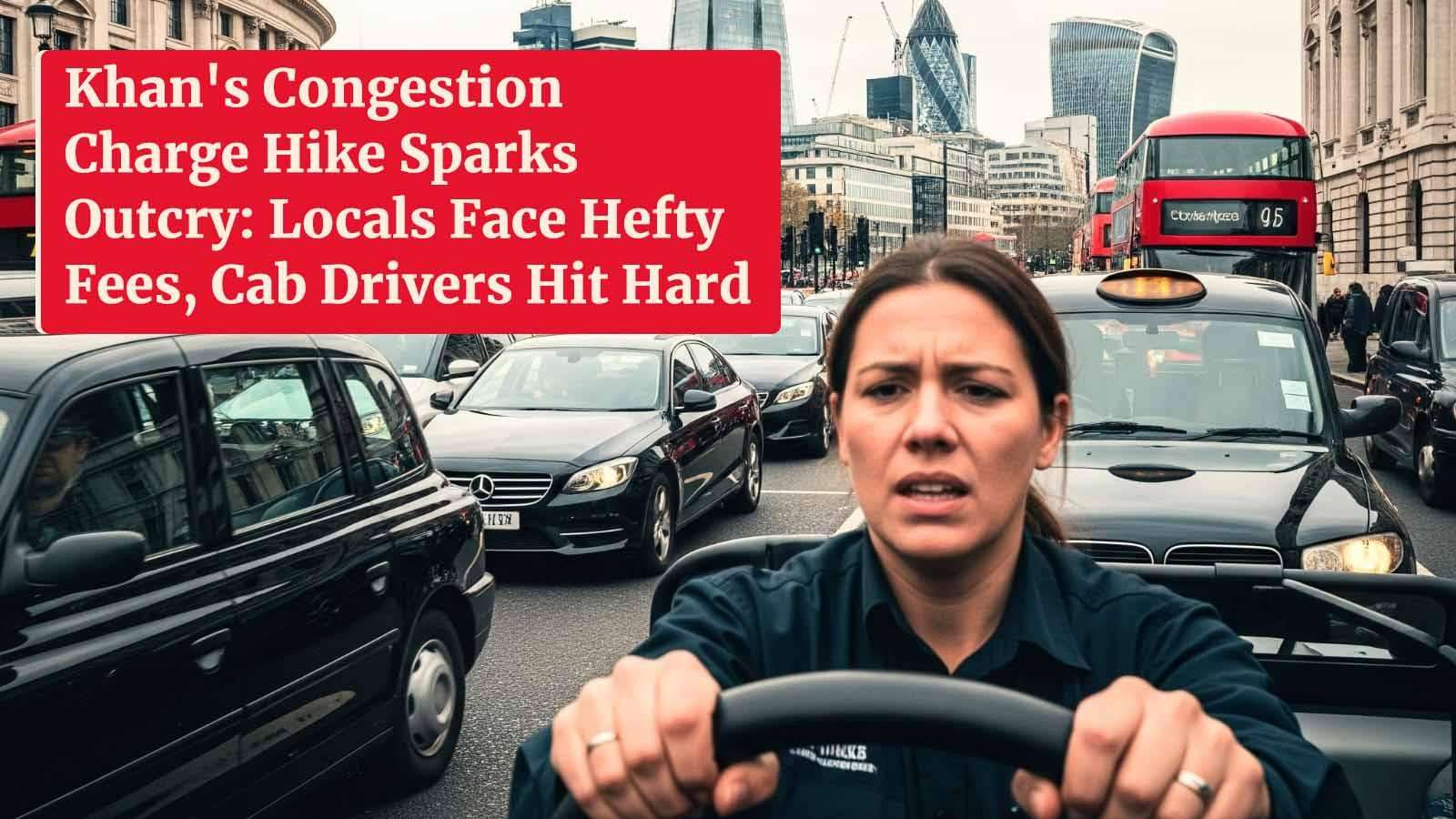Mayor Sadiq Khan's controversial proposal to significantly increase London's daily congestion charge and scrap a long-standing discount for local residents without electric vehicles (EVs) has ignited a fierce debate, drawing criticism from motorists and raising concerns about its impact on everyday Londoners, particularly the city's vital cab drivers.
Under the new plans, Transport for London (TfL), overseen by the Mayor, aims to raise the daily charge for driving in central London from £15 to a hefty £18 starting January 2026 – the first increase since 2020. More controversially, TfL intends to close the popular 90% residents' discount scheme to new entrants unless they drive an EV. This means that from March 2027, anyone moving into a property within the congestion charge zone will be required to own an EV to avoid paying the full £18 daily fee. The discount, a cornerstone of the congestion charge since its introduction in 2003 by Ken Livingstone, currently benefits thousands of residents.
TfL argues these changes are necessary to "encourage the uptake of electric vehicles and promote sustainable travel across the capital." However, critics quickly point to the relatively slow adoption rate of EVs in the UK, suggesting that the policy could disproportionately penalize residents who are unable to afford or practically switch to an electric vehicle in the short term. While one in five cars sold in March were EVs, this figure remains below government targets, indicating a significant transition period ahead for the market to fully electrify. TfL is also proposing annual increases to the congestion charge in line with public transport fares, typically linked to inflation.
Impact on Local Residents and Cab Drivers
The proposed changes are expected to have a substantial impact on tens of thousands of London residents, particularly those who live within the congestion charge zone and rely on traditional petrol or diesel vehicles for work, family, or personal needs. For a resident driving a non-EV car five days a week, the current £1.50 discounted rate would jump to £18 daily, resulting in an additional £82.50 per week, or approximately £3,300 per year, just for driving within the zone. This represents a significant financial burden, especially amidst the ongoing cost of living crisis.
London's vibrant community of cab drivers, many of whom are self-employed and operate older, non-EV licensed taxis, will be particularly hard hit. While some black cabs are converting to electric, a large portion of the fleet remains diesel. These drivers, who often traverse the congestion charge zone multiple times a day, currently benefit from no specific exemption and will face the full £18 daily charge. This translates to an estimated extra cost of around £650-£700 per month for a full-time cab driver working six days a week within the zone, impacting their already tight margins and potentially leading to higher fares for passengers. This added expense could force many out of business or severely reduce their take-home pay, directly impacting their livelihoods and the local economy.
TfL claims that without the charge increase, there would be over 2,200 extra cars on the roads. Seb Dance, the deputy mayor for transport, defended the proposals, stating, "We must support Londoners and businesses to use greener and more sustainable travel. That’s why I’m pleased we’re proposing that substantial incentives remain in place for Londoners who switch to cleaner vehicles.”
However, the plans have drawn sharp condemnation from opposition figures. Susan Hall, leader of the City Hall Conservative Group, lambasted the proposals as a continuation of "the war on motorists... under the dreadful mayoralty of Sadiq Khan."
The timing of these changes comes as TfL grapples with a £23 million budget shortfall this financial year, exacerbated by increases in National Insurance contributions. Despite receiving an additional £500 million in government funding this year, TfL appears set on increasing revenue through these charges.
London currently holds the undesirable title of having the most congested roads in Europe for four consecutive years. The public consultation on these proposed changes will run until August 4th, giving residents and businesses a limited window to voice their concerns about a policy that could significantly reshape urban mobility and financial stability for many within the capital.








.svg)


